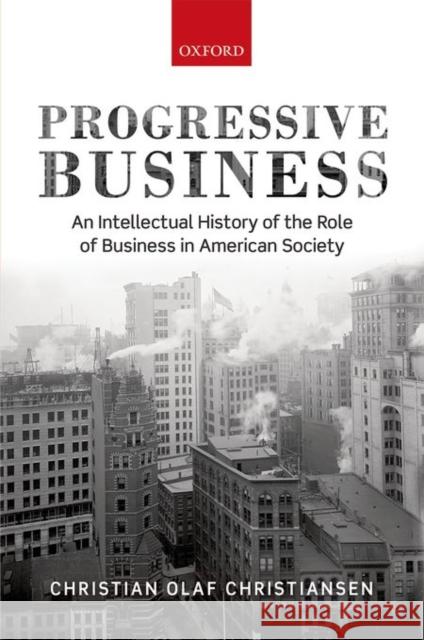Progressive Business: An Intellectual History of the Role of Business in American Society » książka
Progressive Business: An Intellectual History of the Role of Business in American Society
ISBN-13: 9780198701033 / Angielski / Twarda / 2016 / 304 str.
Today, an increasing number of researchers, citizens, politicians, civil organizations, activists, and corporations are concerned with questions such as: Can the financial rationality of firms be constrained by social concerns? Can the market be reformed 'from within'?
Starting in the post-Civil War period of American industrialization, the book traces the emergence of ideas about reforming businesses in the American context, and the ideological and intellectual disputes about these ideas. This book offers a new historical, critical, and in-depth understanding of ideas that have today become increasingly widespread in debates about: corporate social responsibility, corporate philanthropy, corporate citizenship, social entrepreneurship, creating shared value, doing business and being virtuous at the same time. What underlies this discourse is the claim that corporations can change from 'within' - reforming themselves into being good citizens of society. While there has been much enthusiasm about ideas of restructuring the corporation, and the relationships between business and society, critics have argued that businesses continue to focus exclusively on making money. What neither the overly optimistic nor the overly sceptical typically takes into consideration, however, is the long history of social and humanistic business and management ideas.
This book offers a new intellectual history of ideas about socialising or humanising capitalism from within, and the critiques of these ideas. It introduces the concept of 'progressive business' as an analytical category around which these competing ideas can be arranged and studied. This conceptual innovation will allow the reader to acknowledge remarkable resemblances between present day ideas of corporate social responsibility and corporate citizenship, and earlier notions of the soulful corporation, industrial betterment. This will be helpful for gaining new insight into these long-lasting debates about state, business and civil society relationships, and thus for grasping the intellectual background for present-day debates.











